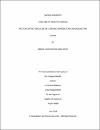Factors affecting dose of cardiac rehabilitation around the globe
Abstract
Background: Cardiac Rehabilitation (CR) program promotes secondary prevention of cardiovascular disease. It is well-established that there is a dose-response association between CR participation and health outcomes. However, programs around the world are of varying durations, and sessions are offered at varying frequencies in each program.
Objective: The aims of this study are to describe CR dose by country, World Health Organization’s (WHO) region, country income classification and global levels; and to determine factors that could affect the dose of CR worldwide.
Method: This is a cross sectional study based on secondary data collected using Cardiac Rehabilitation Program Questionnaire developed by the International Council of Cardiovascular Prevention and Rehabilitation (ICCPR). Analyses included descriptive frequencies for the dose. A generalized linear model (GLM) used by applying generalized estimating equations to compare the dose among WHO regions and among income country groups, and to identify program -related factors (location of the program, payment, location of the program within hospital, presence of cardiologist, number of patients served in each session, presence of other program within 20 km, presence of any alternative models, funding of program) and patient related factors (type of diagnosis, level of risk) that might affect the dose of the CR program.
Results: There was a significant difference between the six WHO regions (p-value <0.05), Americas had the largest dose with a mean of 3263.0 ± 2631.4 minutes, and South-East Asia had the smallest dose with a mean of 871 ± 542.3 minutes. The difference in the dose among the country -income groups was not significant (p-value 0.34). The following factors, among others, were positively associated with dose (p-value < 0.05): presence of cardiologist on the CR team (multiplicative effect on the mean [MEM], 1.29; 95% CI: 1.06 to 1.57), funding the CR program by a combination of governmental organizations and private health insurance (MEM, 1.27; 95% CI: 1.03 to 1.57), number of staff in the CR team (MEM: 1.17, 95% CI: 1.01 to 1.36), number of patients per session (MEM: 1.03, 95% CI: 1.01 to 1.04), and location of CR program (MEM:1.35, 95% CI:1.01 to 1.804).
Conclusion: Both patient-related factors and organizational factors have key roles in doses of CR program. Findings of this study have important implications for the directors of CR program. These findings could guide decision-makers towards improving the dose of CR programs to achieve reductions in both mortality and morbidity associated with cardiovascular diseases.
DOI/handle
http://hdl.handle.net/10576/11185Collections
- Public Health [54 items ]


